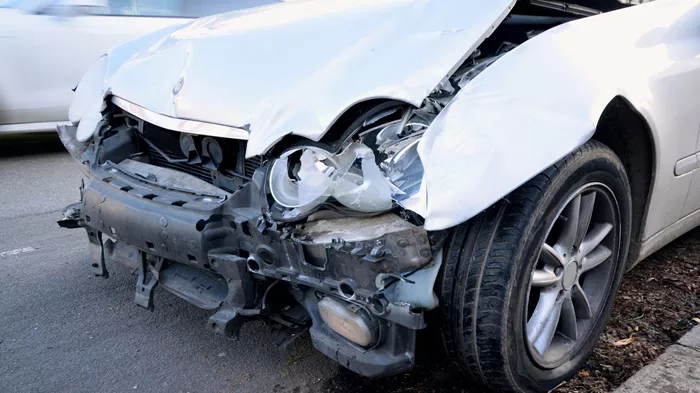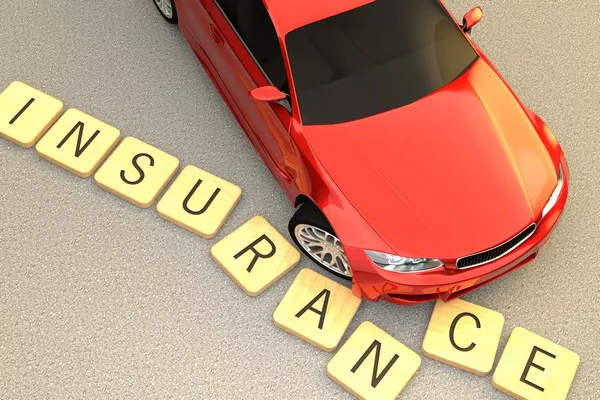When a car is deemed unfit for the road and is considered scrapped, many questions arise regarding the role of insurance. Understanding what insurance covers, the processes involved, and the potential benefits can help car owners navigate this challenging situation.
Understanding Scrapped Cars
1. What is a Scrapped Car
Definition
A scrapped car is a vehicle that is no longer in a condition to be driven safely and is sold for its parts or metal.
Causes
Cars may be scrapped due to severe damage, age, or failing to meet safety standards.
2. Reasons for Scrapping a Car
Accidents
Severe accidents can render a car beyond repair.
Mechanical Failures
Significant mechanical issues that are too costly to fix may lead to scrapping.
Age
Older cars that no longer meet emission standards or safety regulations may be scrapped.
Insurance Coverage for Scrapped Cars
1. Comprehensive Coverage
Damage Compensation
Comprehensive coverage can pay for damage from non-collision events like theft, vandalism, or natural disasters.
Total Loss
If the car is declared a total loss, comprehensive coverage can help pay for the value of the vehicle.
2. Collision Coverage
Accident Damage
Collision coverage pays for damage from collisions with other vehicles or objects.
Total Loss from Accidents
If the car is a total loss due to an accident, collision coverage can provide compensation.
3. Liability Coverage
Third-Party Claims
Liability coverage pays for damage or injury to others if you are at fault in an accident.
Not Applicable for Your Car
Liability coverage does not pay for damage to your own car.
The Process of Scrapping a Car with Insurance
1. Filing a Claim
Report the Incident
Contact your insurance company to report the incident that led to scrapping.
Provide Documentation
Submit necessary documents, including photos and a detailed report of the damage.
2. Insurance Assessment
Inspection
An insurance adjuster will inspect the car to assess the damage.
Valuation
The adjuster will determine the car’s market value before the incident.
3. Settlement Offer
Total Loss Declaration
If the repair costs exceed the car’s value, the insurance company may declare it a total loss.
Compensation
You will receive a settlement offer based on the car’s pre-incident market value.
4. Transfer of Ownership
Sign Over Title
You may need to sign over the car’s title to the insurance company.
Disposal
The insurance company will handle the disposal or sale of the scrapped car.
Financial Implications
1. Deductibles
Out-of-Pocket Costs
You must pay your policy’s deductible before receiving any insurance payout.
Deductible Amount
The deductible amount is specified in your insurance policy.
2. Settlement Amount
Depreciation
The settlement amount considers the car’s depreciation, meaning older cars receive lower payouts.
Fair Market Value
The settlement is based on the car’s fair market value before the incident.
3. Remaining Loan Balance
Loan or Lease
If you have an outstanding loan or lease, the settlement may not cover the full balance.
Gap Insurance
Gap insurance can cover the difference between the settlement and the remaining loan balance.
Legal Considerations
1. Title Transfer
Clear Title
Ensure the title is clear and free of liens before transferring it to the insurance company.
Salvage Title
The car may receive a salvage title, indicating it is scrapped.
2. Environmental Regulations
Disposal Regulations
Follow local regulations for the disposal of scrapped cars.
Recycling Requirements
Ensure the car is recycled according to environmental standards.
Alternatives to Scrapping a Car
1. Repairing the Car
Cost-Effective Repairs
Consider whether repairs are cost-effective compared to scrapping.
Mechanic’s Opinion
Get a mechanic’s opinion on the feasibility of repairs.
2. Selling Parts
Valuable Parts
Sell valuable parts separately to maximize returns.
Online Marketplaces
Use online marketplaces to sell parts to interested buyers.
3. Donating the Car
Charitable Donations
Donate the car to a charity that accepts vehicle donations.
Tax Deductions
You may receive a tax deduction for donating your car.
see also: What Causes Car Insurance to Rise?
Benefits of Scrapping a Car with Insurance
1. Financial Relief
Settlement Payment
Receive a settlement payment to offset the loss of your car.
Avoid Repair Costs
Avoid costly repairs that may not be worth the investment.
2. Legal Protection
Clear Title Transfer
Transfer the title to the insurance company, avoiding legal liabilities.
Regulated Disposal
Ensure the car is disposed of according to legal and environmental standards.
3. Environmental Benefits
Recycling
Scrapping allows for the recycling of usable parts and metal, reducing waste.
Proper Disposal
Ensure hazardous materials are disposed of properly.
How to Choose the Right Insurance for Your Car
1. Comprehensive and Collision Coverage
Coverage Options
Choose comprehensive and collision coverage to protect against various risks.
Policy Limits
Review policy limits to ensure adequate coverage.
2. Deductible Amount
Affordable Deductible
Choose a deductible amount you can afford to pay out-of-pocket.
Higher Deductible for Lower Premiums
Opt for a higher deductible to reduce your premium costs.
3. Additional Coverage
Gap Insurance
Consider gap insurance if you have a loan or lease.
Rental Reimbursement
Add rental reimbursement to cover the cost of a rental car while your claim is processed.
FAQs
1. Can I keep my scrapped car after receiving an insurance settlement
Yes, you can often choose to keep your scrapped car after receiving a settlement. However, the insurance company will deduct the car’s salvage value from your settlement amount. You must also handle the disposal or repair of the car.
2. What happens to the scrapped car after the insurance company takes it
After taking ownership, the insurance company typically sells the scrapped car to a salvage yard or recycler. The car is then dismantled, and usable parts are sold. The remaining metal is recycled.
3. How is the value of a scrapped car determined
The value of a scrapped car is determined by its pre-incident fair market value. The insurance adjuster will assess the car’s condition, age, mileage, and market value to calculate the settlement amount.
4. Can I negotiate the settlement amount for my scrapped car
Yes, you can negotiate the settlement amount with your insurance company. Provide evidence of your car’s value, such as recent repairs or upgrades, to support your case. It is advisable to consult a professional if you feel the offer is too low.
5. Do I need to continue paying my car insurance premiums if my car is scrapped
You should continue paying your car insurance premiums until the claim is settled and the policy is officially canceled. Failing to do so can result in coverage lapses or legal issues.
Conclusion
Understanding what insurance does for a scrapped car is crucial for car owners facing this situation. Comprehensive and collision coverage can provide financial relief when a car is declared a total loss. The process involves filing a claim, an insurance assessment, and receiving a settlement offer. Considering alternatives to scrapping and choosing the right insurance coverage can provide additional benefits. By following the steps outlined in this article, you can navigate the complexities of scrapping a car with insurance and make informed decisions.




















